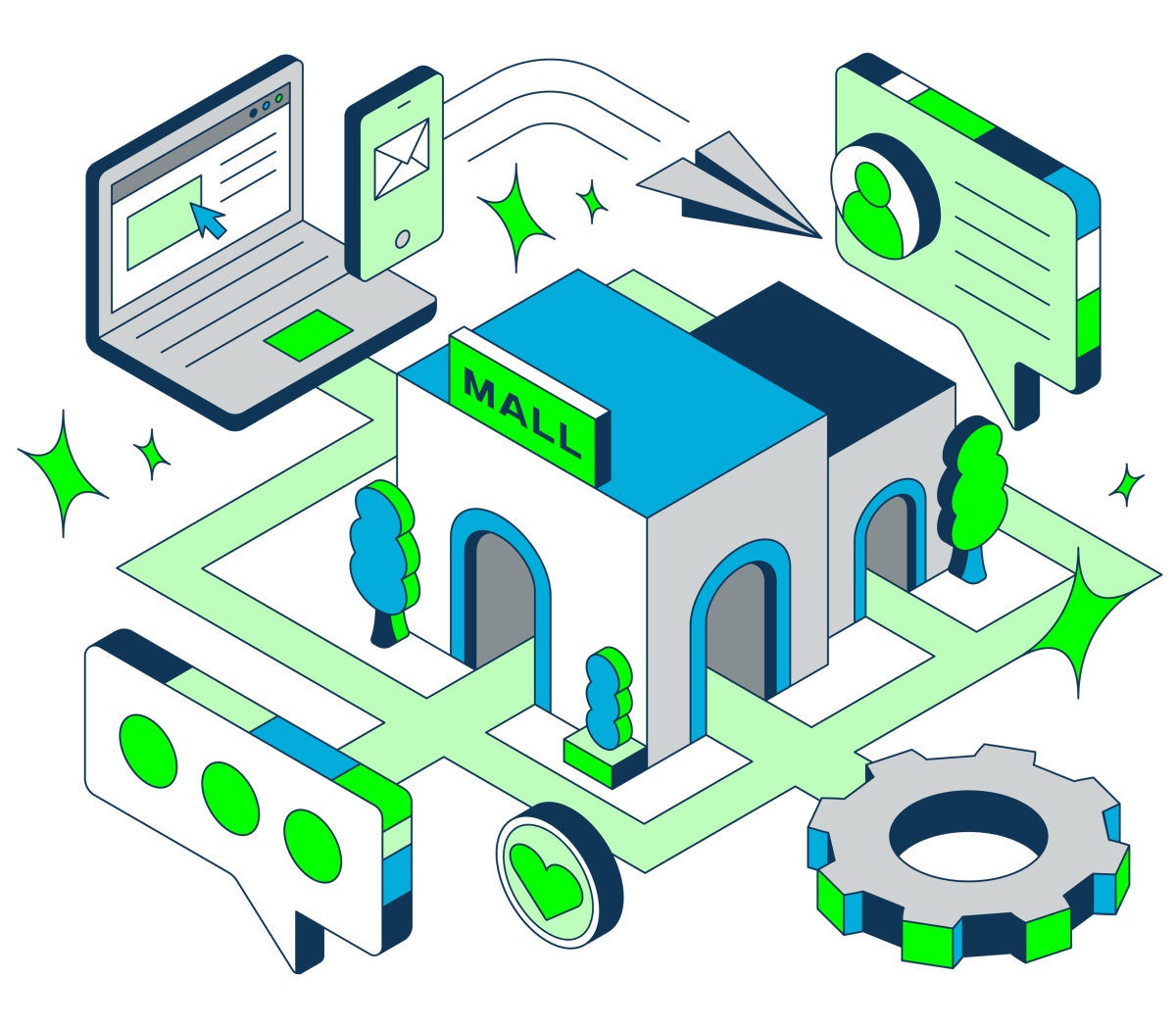
How to create a marketing plan that does all the heavy lifting
Learn tips and tricks to get eyes on your brand
Marketing your business can feel like a daunting task. Who has time to update their website regularly, post on social media daily, and run an email marketing campaign while juggling everything else it takes to manage a business? It might be time consuming, but the key to growing your retail business is to nurture your current customers while doing whatever you can to reach new ones. In short, the key is marketing.
Marketing gives you the power to deliver the right message, at the right time, to the right people. It’s a highly effective piece of your overall business plan that helps grow a strong customer base. However, executing a marketing plan is only effective if it is rooted in strategy, and only successful if you go through the correct channels. Let’s dive in on the best ways to do both.
A marketing strategy is your North Star

There’s lots to consider when putting together a marketing plan. How can I make my website more impactful? What should I be emailing my customers about? What am I going to post on social media today? These questions become simple once you have a strategy in place. Before you begin sending emails and creating brochures, it is critical to take the time to reflect on your business, your product or service, your goals, and your audience. Understanding each will guide you in the right direction and save you time and money — don’t just start dancing on TikTok for nothing!
First, take an introspective look at your brand. How would you describe your business? What are the goals, aspirations, and values of your business? Who are your competitors and what makes you stand apart from them? Understanding these helps solidify your brand’s mission statement — and consumers are more likely to get behind a brand that has strong emotional appeal and conveys a similar sense of morals and values.
Second, make sure you clearly define your business goals. What does success look like? What action would you like your audience to take? Understanding both may help you build the structure of your marketing plan and allow you to accurately measure growth and progress.
Lastly, it’s important that you know your audience. Who does your business currently reach? Who would you like to reach? Discovering both allows you to build content relevant to your audience and find the appropriate channel or tactic that will push your messages to that exact target. For example, if you own a retail store that sells baby clothes, accessories, and toys, you’ll have a better chance at reaching your audience by advertising on mom blogs as opposed to Snapchat.
Developing a marketing strategy helps focus your time and energy. It allows you to make decisions based on data, critical thinking, and a sound analysis versus shooting in the dark on what might work. To help you develop your own marketing strategy, download our framework worksheet and spend some time filling out each question. Your answers will guide your marketing plan and offer a reference the next time you get stuck creating marketing materials.
What channels are right for you?
Now that you are thinking strategically, it’s time to decide which marketing channels make sense. Is your target audience Gen Z? TikTok could be a great channel to activate. Does your product sell best when someone can sample it? Maybe event marketing is key. Here is a list of common marketing channels we see many retail brands utilize:
Brand website
Social media
Google Business Profile
SEO & SEM
Email
PR/media
Digital advertising
Signage
Brochures/flyers
Direct mail
Blogs
Events
Trade shows/expos
Meetings/webinars
Partnerships/collabs
Influencers

The key is to think carefully about which channels you will activate. Most businesses will want to have a website, at least one or two social media channels, and a Google Business Profile as a baseline. Then, layer on channels that make sense for the specific strategy you’ve laid out. If you decide your target is Gen Z and Millennials, you might go all in on social and digital. If your marketing goal is to increase brand awareness, you might prioritize PR. And don’t be afraid to test, measure, and reconsider if a channel isn’t working for your business. There’s no sense in going all in on a marketing tactic if you aren’t seeing the returns.
Once you have your channels outlined, you can start creating and scheduling content for each. For more tips about content creation as a retail business, check out this Retailvisory article.
Include the mall in your marketing plan
Opening a store at a mall unlocks more possibilities to market your business. A mall’s built-in audience, consistent traffic, and opportunity for new consumers to discover your brand can be very powerful! On top of that, malls have their own marketing channels such as a website, email programs, and social media profiles that can feature your business, sales, and events. A mall’s powerful media network could get your brand in front of many eyes — more on that in our in-mall advertising Retailvisory article.
Developing a marketing plan from a strategic standpoint will not only save you time, but it will also ensure that your plan is rooted in something real and help you understand the nuances of your business. This, in turn, will help you find your brand story and better connect with customers to reach your goals. Marketing is crucial for retail businesses — especially those that have a brick-and-mortar component — as it is your chance to share your brand’s values, showcase your product or service, and highlight your in-store experience. It invites potential customers in before they even set foot in your shop. Take some time to think strategically, understand your purpose, and craft a plan that will truly help you meet your full potential.
Interested in opening a store, and marketing your store at a mall?
Get in touch with a Brookfield Properties leasing expert here.
